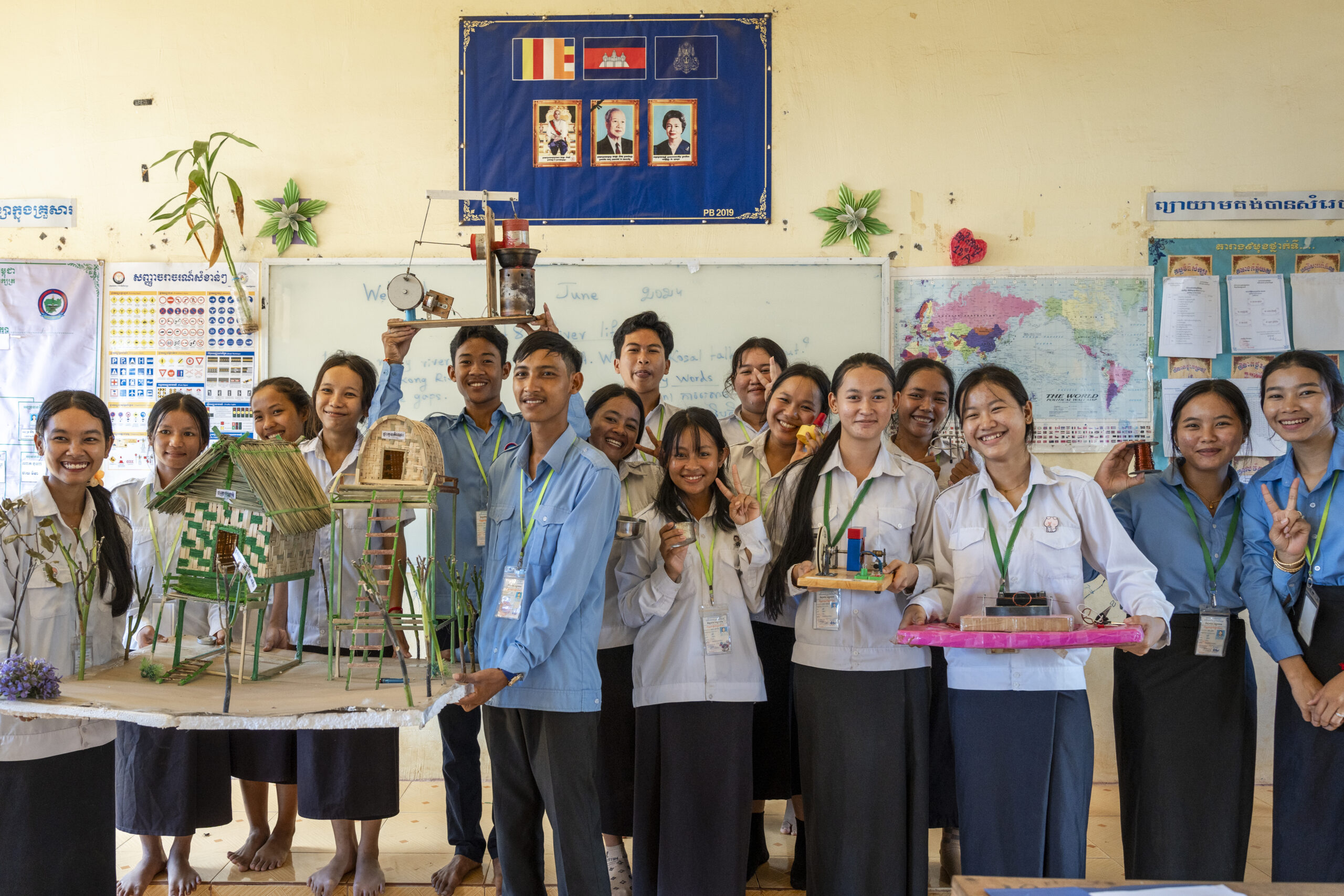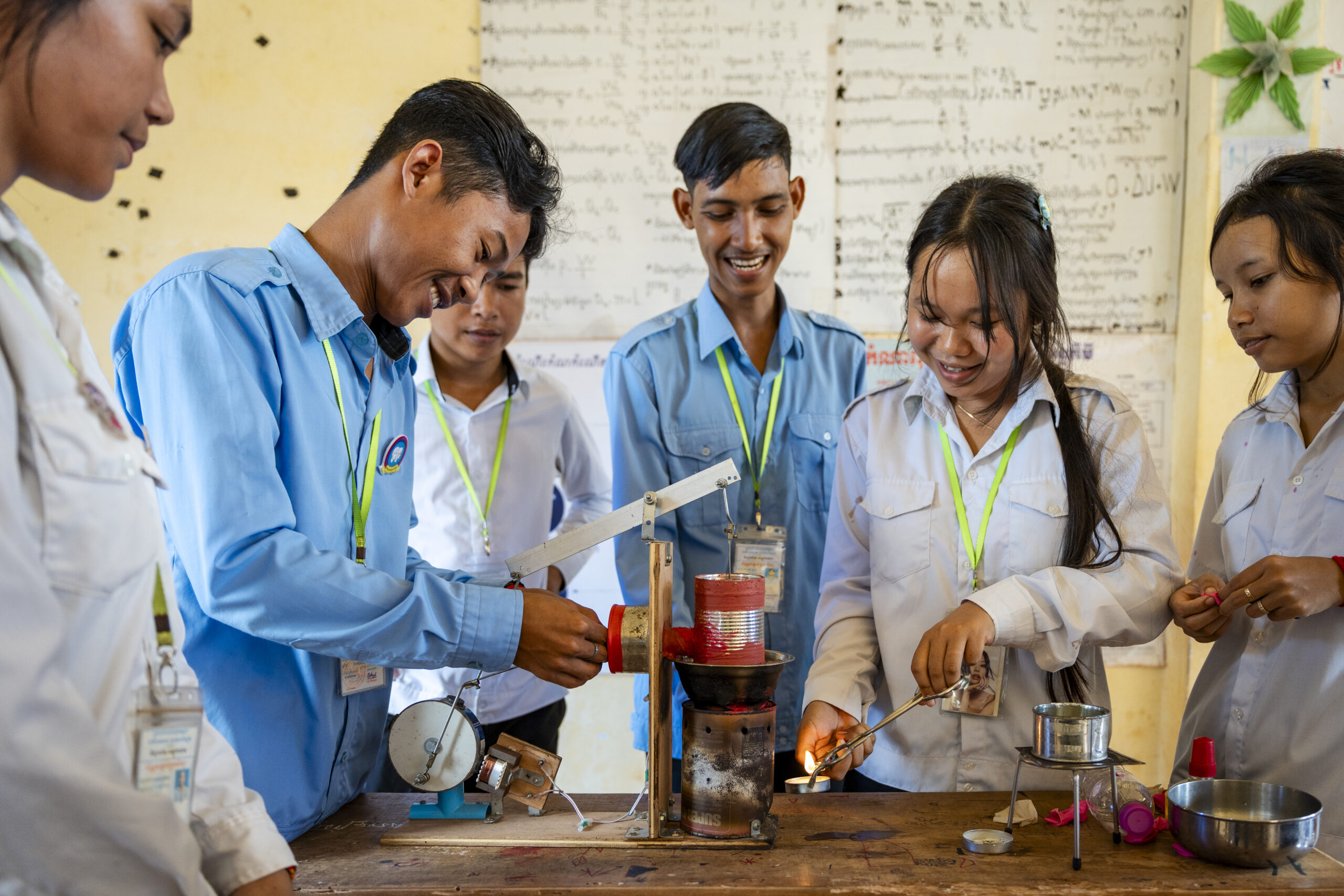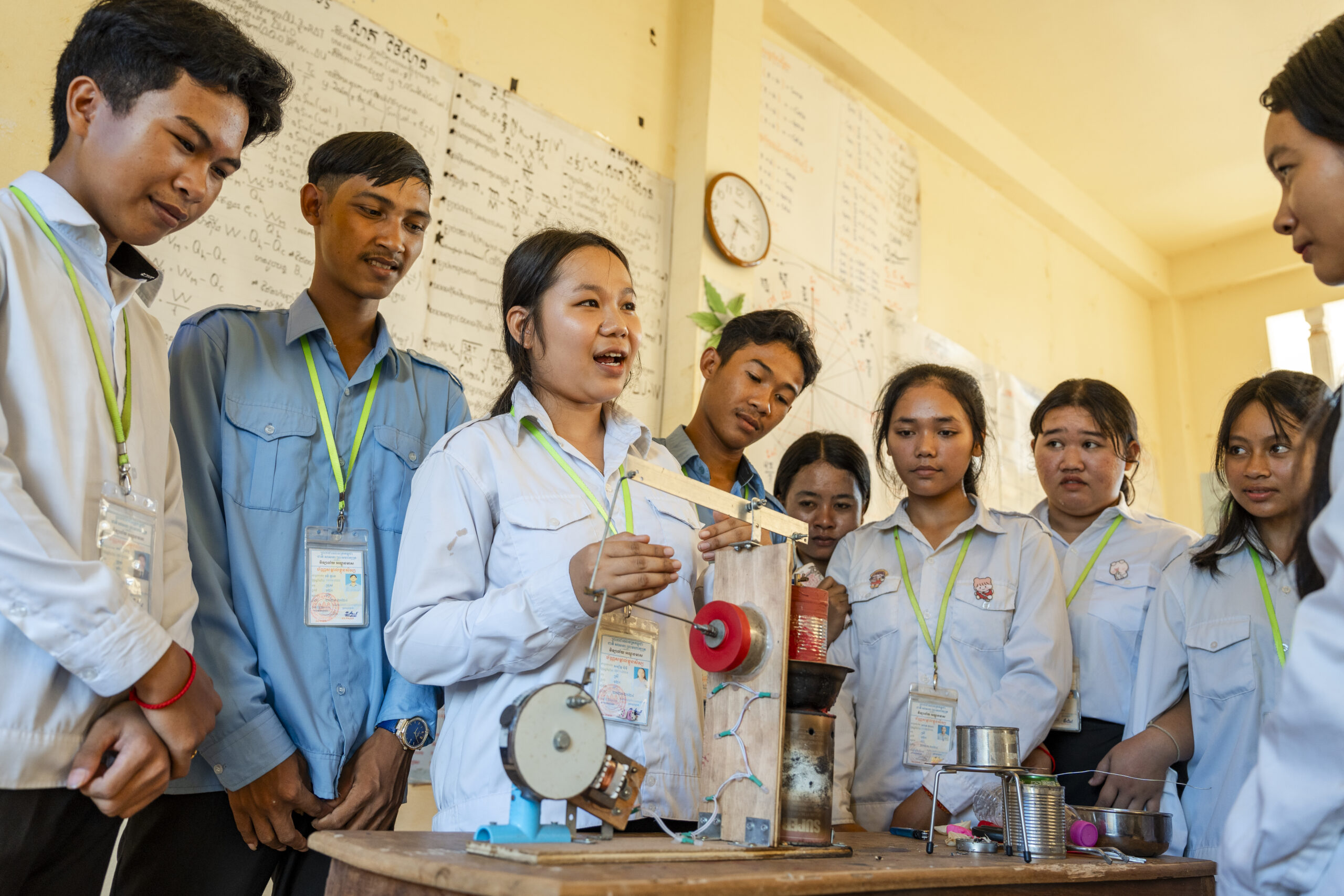Sambath Mey Mey is great at mathematics, chemistry, and physics, her classmate calls her a genius student and a fast learner in science.
As a vice class monitor, she supports peer-to-peer learning and prepares STEM experiences as such.
A little girl with a big ambition. She’s really good at finding information online. Her impressive academic record and confident personality demonstrate her commitment to this year’s national exam as she eagerly seeks an opportunity to secure a scholarship at a university in Phnom Penh, where she plans to enroll.
“As I believe, I can achieve these dreams in the future,” she says. A brave girl with an optimistic mindset would never give up on pursuing education more brightly. She’s an important supporter to her classmates in terms of sharing, exchanging new knowledge and creative activities to bring innovation and recycling of goods in the classroom by doing experiments using recycled objects.
At various middle schools and high schools in Ratanak Kiri Province, CARE’s education project has implemented in indigenous and marginalized communities. Closely partner with the Ministry of Education, Youth and Sport, the aim of inclusive education includes the focus on adolescent empowerment and the implementation of Sexual and Reproductive Health and STEM curriculum. Under CARE’s two-year project Building Critical Thinking in Emerging Leaders, a cohort of educators received traineeship, technical support and learning of critical thinking and decision-making.
The impact of their growth has been reflected in innovative and engaged classes, like the 12 graders of Andoung Meas high school.The young minds are interested in learning to create things, driven by curiosity. This art of learning unlocks their potential and ignites credible change for a brighter future.



